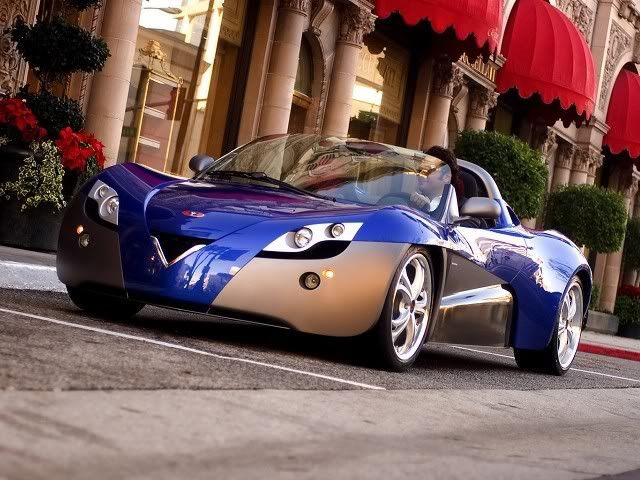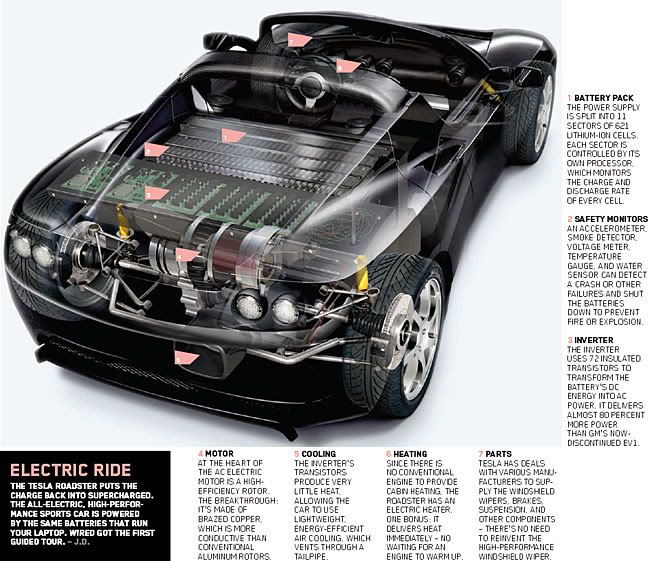apperantly an electric motor is much more effecient than any gasoline hybrid engine out there...
and the modern battery technology as of 2003 allowed for electric cars to travel up to 200+miles with every charge...which would require plugging in the car to a normal 120V wall outlet
yet by 2003, the auto companies literally crushed their electric car program with the onset of the oil-company-backed Hydrogen fuel cell program....
"there was no demand for [electric cars]"-GM
quick facts about electric motors:
-max torque at 0rpm...
-current car applications could yield around 500hp @ 6250rpm, 420 ft-lbs @ 0rpm (yes u read that right, ZERO rpm), with 82% effeciency, all with a 150lb motor
-almost zero maintenance
-forget H22 accord...im getting a Rasertech Symetron swap
Dyno Video<::::::::::::::
Who Killed The Electric Car?
Click to Watch Video<::::::::::::::
here r some wicked electric cars that are considerably viable in today's markets:
Venturi Fetish www.venturi.fr mmm...je t'aime

Tesla Roadster www.teslamotors.com wicked

and the modern battery technology as of 2003 allowed for electric cars to travel up to 200+miles with every charge...which would require plugging in the car to a normal 120V wall outlet
yet by 2003, the auto companies literally crushed their electric car program with the onset of the oil-company-backed Hydrogen fuel cell program....
"there was no demand for [electric cars]"-GM
quick facts about electric motors:
-max torque at 0rpm...
-current car applications could yield around 500hp @ 6250rpm, 420 ft-lbs @ 0rpm (yes u read that right, ZERO rpm), with 82% effeciency, all with a 150lb motor
-almost zero maintenance
-forget H22 accord...im getting a Rasertech Symetron swap
Dyno Video<::::::::::::::
Who Killed The Electric Car?
Click to Watch Video<::::::::::::::
here r some wicked electric cars that are considerably viable in today's markets:
Venturi Fetish www.venturi.fr mmm...je t'aime


Tesla Roadster www.teslamotors.com wicked









 ...don't give him any ideas.
...don't give him any ideas.

Comment